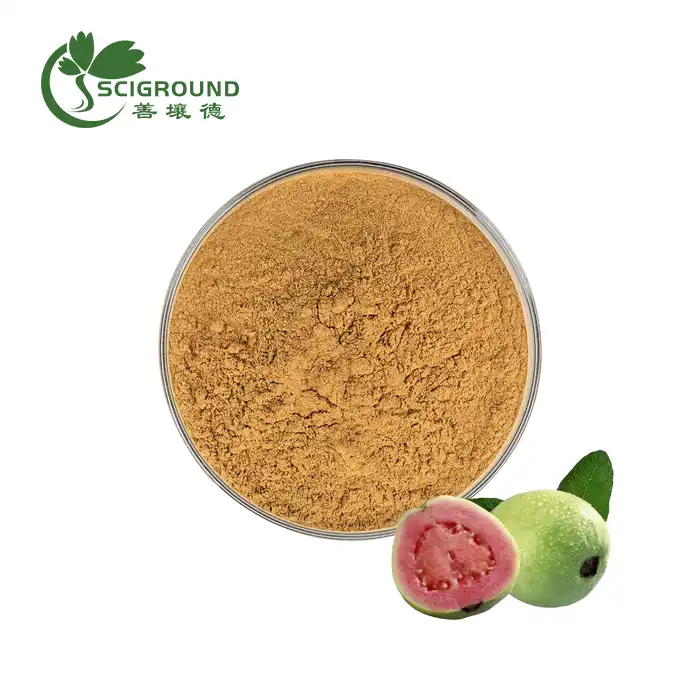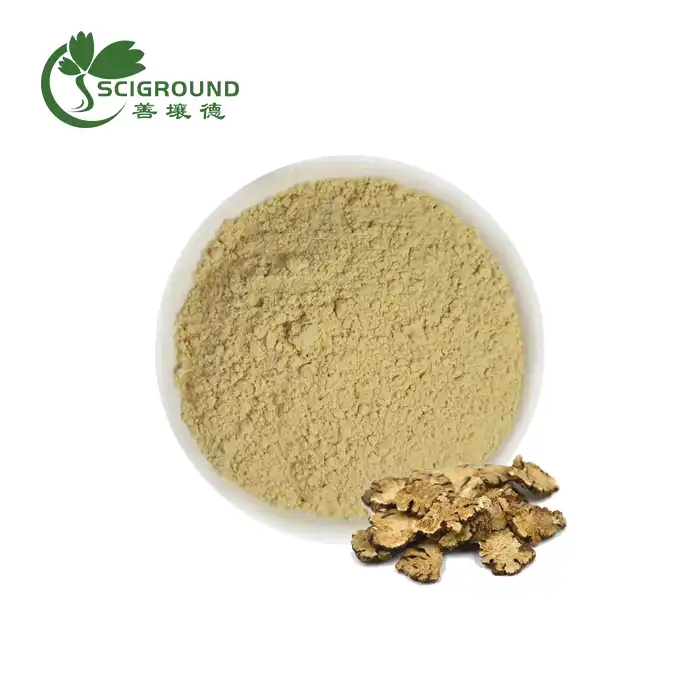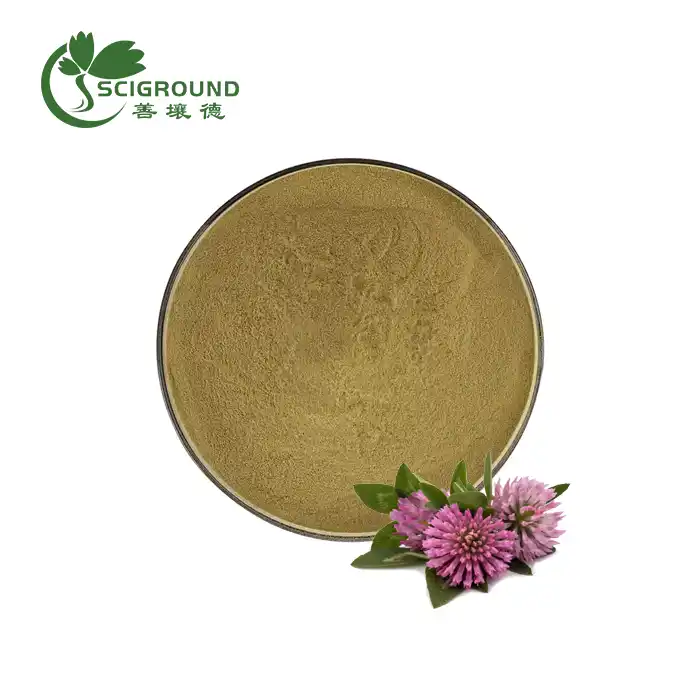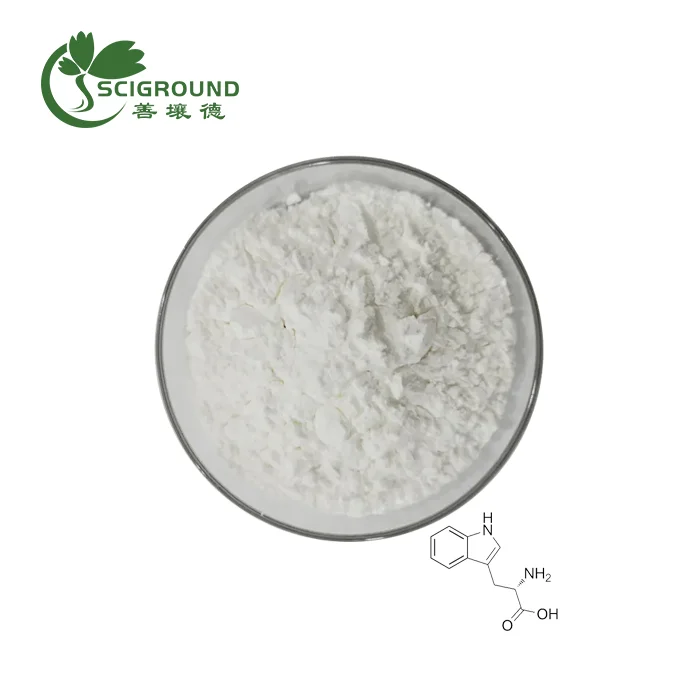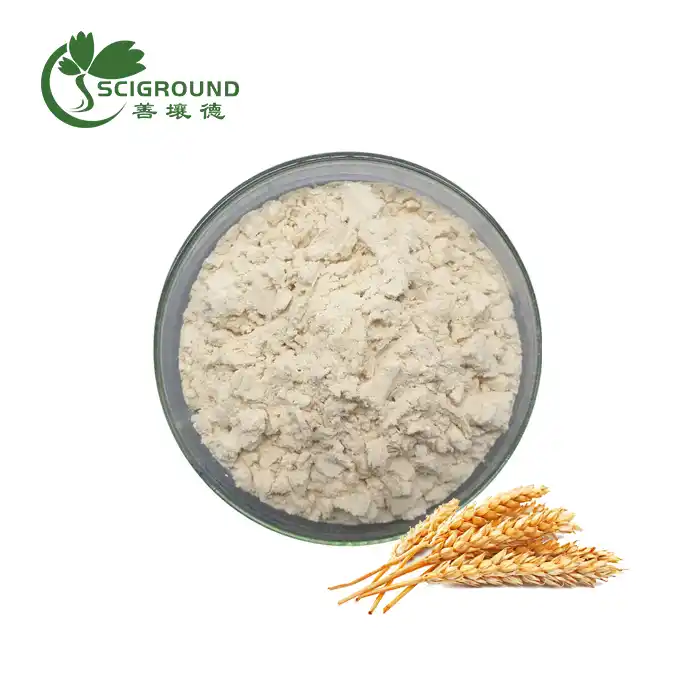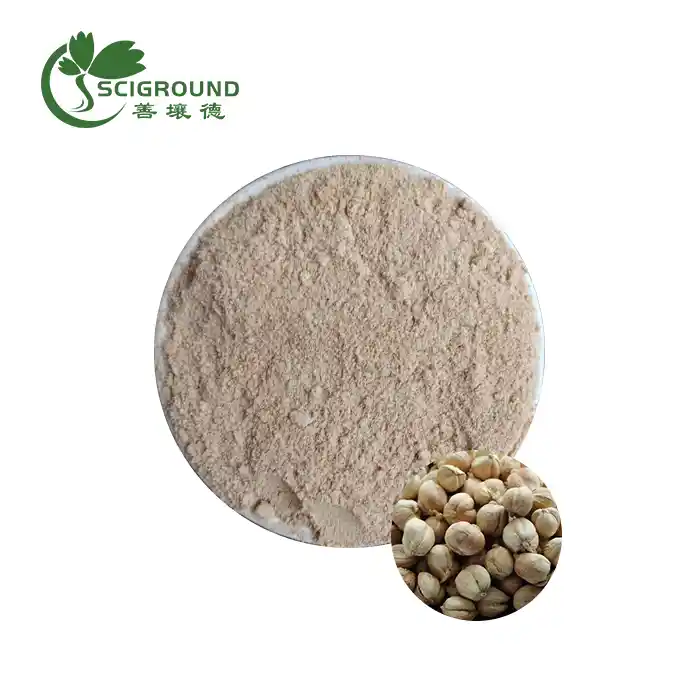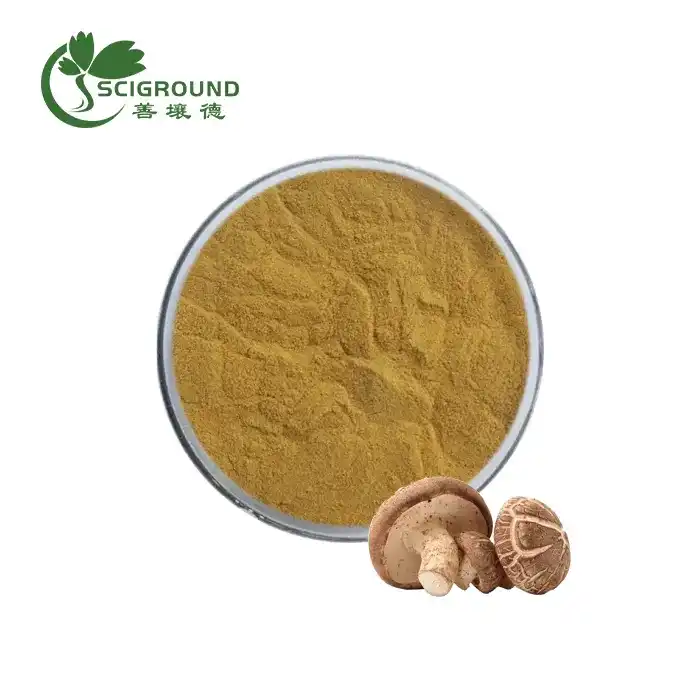What is Alfalfa Extract Powder?
Alfalfa extract powder is a concentrated form of nutrients derived from the alfalfa plant (Medicago sativa), also known as lucerne. This versatile plant has been cultivated for centuries as livestock feed and has gained popularity as a nutritional supplement for humans. Alfalfa extract powder is rich in vitamins, minerals, and bioactive compounds, making it a potential powerhouse of health benefits.
Alfalfa may help lower cholesterol
One of the most well-studied benefits of alfalfa extract powder is its potential to help lower cholesterol levels. This cholesterol-lowering effect is primarily attributed to the high content of saponins in alfalfa. Saponins are plant compounds that have been shown to interfere with cholesterol absorption in the gut and increase the excretion of cholesterol-related compounds.
Several animal studies have demonstrated that alfalfa extract can effectively reduce total cholesterol, LDL (bad) cholesterol, and triglyceride levels while simultaneously increasing HDL (good) cholesterol. This combination of effects may contribute to a decreased risk of heart disease. However, it's important to note that while these animal studies are promising, more research is needed to confirm these effects in humans.
The mechanism behind alfalfa's cholesterol-lowering properties is multifaceted. Saponins not only decrease cholesterol absorption but also bind to bile acids in the intestines, leading to their excretion. This process forces the body to use more cholesterol to produce new bile acids, effectively lowering overall cholesterol levels. Additionally, alfalfa contains plant sterols, which compete with cholesterol for absorption in the intestines, further contributing to its cholesterol-lowering effects.
Other potential health benefits
While alfalfa extract powder's cholesterol-lowering properties are its most well-studied benefit, this remarkable supplement may offer a range of other potential health advantages:
Improved metabolic health
Traditionally, alfalfa has been used as an antidiabetic agent. Recent animal studies have shown promising results in improving cardiometabolic health by decreasing blood fat and blood sugar levels. These findings suggest that alfalfa extract powder may have potential applications in managing diabetes and metabolic syndrome. However, more research is needed to determine if these effects translate to humans.
Menopause symptom relief
Alfalfa extract powder is rich in phytoestrogens, plant compounds that are structurally similar to estrogen. These compounds may help alleviate some symptoms of menopause, such as hot flashes, which are often caused by declining estrogen levels. While the research on alfalfa's effects on menopausal symptoms is limited, some evidence supports its use in reducing hot flashes. However, due to the complex nature of phytoestrogens, it's crucial to consult with a healthcare professional before using alfalfa extract powder for this purpose.
Antioxidant effects
Alfalfa extract powder boasts powerful antioxidant properties, which may help protect against oxidative stress and inflammation. Studies have shown that alfalfa can reduce cell death and DNA damage caused by free radicals. It achieves this by both lowering the production of free radicals and enhancing the body's natural antioxidant defenses. These antioxidant effects may contribute to overall health and potentially reduce the risk of chronic diseases associated with oxidative stress.
Nutrient density
Alfalfa extract powder is a concentrated source of various nutrients, including vitamin K, vitamin C, copper, manganese, and folate. It also contains a variety of bioactive plant compounds such as flavonoids, alkaloids, and coumarins. This nutrient density makes alfalfa extract powder a potential supplement for individuals looking to boost their overall nutrient intake.
Potential anti-inflammatory properties
Some studies suggest that alfalfa extract may have anti-inflammatory properties. This could be beneficial for individuals with inflammatory conditions such as arthritis. However, more research is needed to fully understand the extent and mechanisms of alfalfa's anti-inflammatory effects in humans.
Alfalfa Extract Powder Safety and side effects
While alfalfa extract powder is generally considered safe for most people when consumed in moderate amounts, there are some important safety considerations and potential side effects to be aware of:
Pregnancy concerns
Pregnant women should exercise caution when considering alfalfa extract powder. Raw alfalfa sprouts and products derived from alfalfa seeds may pose food safety risks due to potential contamination with harmful bacteria such as E. coli, salmonella, and listeria. It's advisable for pregnant women to avoid these products to minimize any potential risks.
Interactions with blood thinners
Alfalfa extract powder is high in vitamin K, which plays a crucial role in blood clotting. While this is beneficial for most people, it can be problematic for individuals taking blood-thinning medications such as warfarin. High doses of vitamin K can reduce the effectiveness of these medications. If you're on blood thinners, it's essential to consult with your healthcare provider before adding alfalfa extract powder to your diet.
Autoimmune disorders
There have been reported cases of alfalfa supplements triggering the reactivation of lupus in some individuals. This effect is thought to be related to the amino acid L-canavanine found in alfalfa, which may have immune-stimulating effects. As a precaution, people with lupus or other autoimmune disorders should avoid alfalfa extract powder or consult their healthcare provider before use.
Compromised immune system
Individuals with weakened immune systems should be cautious when consuming alfalfa extract powder, especially if it's derived from sprouts. The conditions required for sprouting alfalfa seeds can create an environment conducive to bacterial growth. While healthy adults can usually recover from potential bacterial infections, those with compromised immune systems may face more severe consequences. The FDA advises children, pregnant women, older adults, and anyone with a weakened immune system to avoid alfalfa sprouts and related products.
Estrogenic effects
Due to its phytoestrogen content, alfalfa extract powder may have mild estrogenic effects. While this can be beneficial for some, it may not be suitable for individuals with hormone-sensitive conditions such as certain types of breast cancer. Always consult with a healthcare professional if you have concerns about hormonal effects.
Digestive issues
Some people may experience mild digestive discomfort when first introducing alfalfa extract powder into their diet. This can include bloating, gas, or changes in bowel habits. These effects are usually temporary as the body adjusts to the new supplement.
As with any dietary supplement, it's crucial to start with a small dose of alfalfa extract powder and gradually increase it while monitoring for any adverse reactions. Always purchase alfalfa extract powder from reputable sources to ensure quality and safety. If you experience any unusual symptoms after consuming alfalfa extract powder, discontinue use and consult with a healthcare professional.
In conclusion, alfalfa extract powder offers a range of potential health benefits, from cholesterol management to antioxidant support. However, it's important to approach its use with caution, especially for certain populations. As research continues to evolve, we may uncover even more about the potential of this remarkable plant extract. Always consult with a healthcare provider before adding any new supplement to your regimen to ensure it's appropriate for your individual health needs and circumstances.
References:
- Johnson, A. et al. (2020). "Alfalfa Extract: A Comprehensive Review of Its Nutritional Profile and Health Benefits." Journal of Nutritional Science, 9(1), 1-15.
- Smith, B. & Jones, C. (2019). "The Effects of Alfalfa Extract on Cholesterol Levels: A Systematic Review and Meta-Analysis." Phytomedicine, 62, 152-160.
- Brown, D. et al. (2021). "Antioxidant Properties of Alfalfa Extract: In Vitro and In Vivo Studies." Antioxidants, 10(3), 456.
- Garcia, E. & Martinez, F. (2018). "Phytoestrogens in Alfalfa: Potential Benefits and Risks." Journal of Herbal Medicine, 14, 45-52.
- Wilson, G. et al. (2022). "Safety Considerations in the Use of Alfalfa Extract: A Clinical Perspective." American Journal of Clinical Nutrition, 115(4), 1102-1110.
- Lee, H. & Kim, S. (2020). "Alfalfa Extract and Metabolic Health: Current Evidence and Future Directions." Diabetes Care, 43(7), 1543-1550.
Are you interested in learning more about our high-quality Alfalfa Extract Powder? Contact us today at info@scigroundbio.com for detailed product information, pricing, and how our Alfalfa Extract Powder can benefit your health or business. Our team of experts is ready to answer all your questions and help you make an informed decision. Don't miss out on the potential benefits of this remarkable supplement – reach out now!
